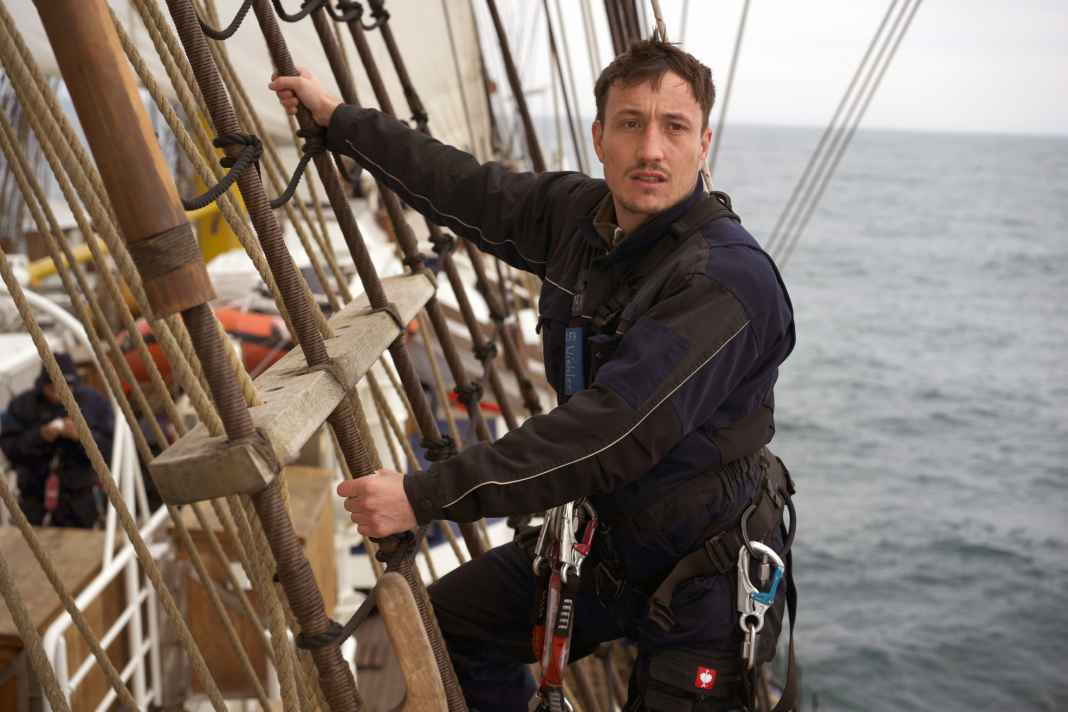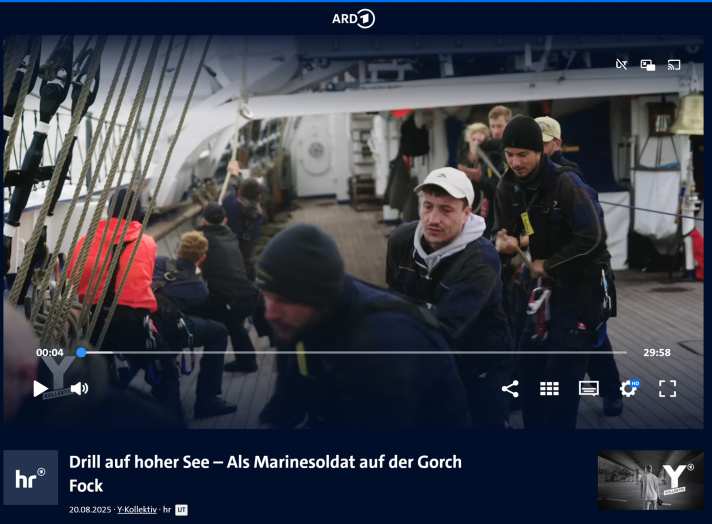





Journalists are occasionally invited to short presentation cruises on the Gorch Fock sail training ship. However, these "bathers", as they are derisively called by the crew, rarely get an authentic insight into everyday life on board. They take photos, ask questions and usually get in the way of the working crew. Lukas Wiehler is different: the young editor at Hessischer Rundfunk was the first journalist ever to take part in the complete training programme on the sail training ship. For a fortnight, he accompanied the cadets on their journey from the Azores to Scotland - not as an observer, but as an active crew member. He used his camera to document his service and the daily challenges on board the naval vessel.
Reporter as crew member
The film shows Wiehler in the same blue uniform as the other cadets when he is roused from sleep at 6.30 a.m. with the traditional call "Rise, rise" or pulls the numerous ropes of the rigging together with the others. However, the documentary not only captures the spectacular moments, but also gives an insight into the many routine tasks that are part of the service: Tying up and stowing the hammocks in the morning before breakfast, choir rehearsals on deck in dirty weather or theory lessons.
Rigging challenges
The highlight of the trip for Wiehler was getting into the main mast - an experience that took place under special safety precautions for him. "It wasn't that dramatic in itself, as you're only travelling for about a minute," he reports. After reaching their position in the mast, the crew members secure themselves with carabiners in the standing rigging. "It works like in a climbing forest." These safety measures are part of a revised concept that was introduced after the fatal accident of a female cadet in 2010. The young woman fell from the rigging onto the deck. Wiehler only completed the ascent to the mast once. "I hadn't completed the preliminary training on land and didn't want to constantly disrupt operations," he explains. Once at the top, he helped to retrieve a square sail.
Between seasickness and team spirit
Integrating the layman into the professional sailing crew was a particular challenge. "I was the weakest link in the group," admits Wiehler. He regularly had to ask for commands and could barely memorise the names of the rig's numerous different lines. To make matters worse, his cameraman suddenly dropped out. "He had underestimated how a sailing ship like the Gorch Fock would behave in bad weather." While Wiehler wore a plaster behind his ear as a precaution against seasickness, his colleague had come on board unprepared. With wind forces of up to eight and waves four metres high in the Atlantic, the cameraman was incapacitated by seasickness. Fortunately, a Bundeswehr soldier with camera experience stepped in and took over the rest of the documentation.
Authentic insights
The 30-minute film gives an unembellished insight into life on board. It shows both the strenuous work such as tugging on the lines and staying afloat as well as the everyday routines such as meal breaks and conversations between the crew members. Wind noises while working in the mast and water splashes on the camera lens lend additional authenticity to the reportage. Despite all the hardships, Wiehler seems to have enjoyed the experience, even though he complains about the cold and getting up early. The partial loss of individuality was a particular challenge for him. "It's a huge restriction," he says. This is particularly true in the context of military service: "The Bundeswehr as an institution is terribly alien to me, and many people my age feel the same way."

